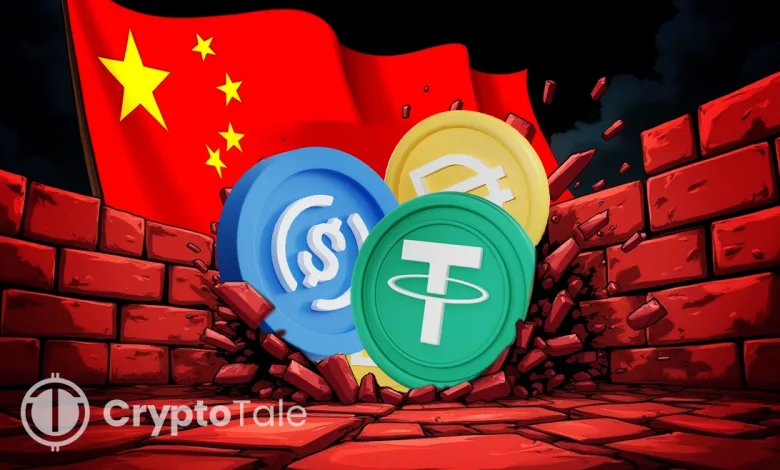Shenzhen Government Warns of Stablecoin Scams Amid Growing Digital Asset Hype

- Shenzhen warns that unlicensed stablecoin projects may be used to conceal fraud and scams.
- China targets stablecoin misuse to shield the public from high-risk digital asset traps.
- Tightening grip, Shenzhen aligns with a national push to curb rogue crypto fundraising.
Shenzhen authorities have issued a strong warning against the misuse of stablecoins in illegal fundraising and financial scams. The city’s Task Force for Preventing and Combating Illegal Financial Activities noted the increasing use of stablecoins in fraudulent schemes. Authorities emphasized that some entities are falsely promoting investments in “virtual assets” to mislead the public. These activities often involve unlicensed platforms operating without regulatory approval from national financial agencies.
The government highlighted that these schemes frequently exploit public misunderstanding of digital assets. Fraudsters use complex terminology and exaggerated claims to attract investors. Residents are being urged to avoid promises of guaranteed high returns. Officials reiterated that losses from such scams will not be reimbursed by the government. Public vigilance and due diligence are being stressed as essential protective measures.
Shenzhen authorities reminded the public that issuing stablecoins without proper licenses is illegal. Officials warned that such projects may involve criminal activities like fraud, gambling, or money laundering. To combat these risks, Shenzhen is encouraging citizens to report suspicious activities. The city’s approach aligns with China’s broader crackdown on decentralized crypto projects. Local enforcement is also seen as a support measure for the development of China’s central bank digital currency, the digital yuan. Officials aim to protect financial stability while guiding digital asset innovation within regulated channels.
Stablecoins Under Increasing Regulatory Scrutiny
There has been increased interest in stablecoins whose value remains fixed by being pegged to assets such as the US dollar. What is attractive about them is that they are less volatile than conventional cryptocurrencies. However, the Chinese government remains vigilant, as it fears that these platforms can be exploited to lend credibility to illicit financial transactions. In turn, the government of Shenzhen is strengthening its message on regulation compliance and risk sensitivity.
Authorities caution that many entities mislabel tokens as “stablecoins” or “digital wealth” to confuse investors. Such misrepresentations are often part of unregistered fundraising efforts. Without national approval, these offerings are considered unlawful under Chinese financial law.
Aligning Domestic Crackdowns with Global Stablecoin Trends
The measures taken by Shenzhen are an indication of the attitude that the Chinese central government takes toward decentralized cryptocurrencies. China has prohibited the trading and mining of cryptocurrencies and is developing the use of its state cryptocurrency, the digital yuan. Governmental agencies still favor blockchain technology, albeit with heavy regulation, but disapprove of personal digital currencies and cryptocurrencies that threaten monetary independence. The digital yuan is set as the primary alternative to the country’s digital currency.
As global regulators weigh stablecoin frameworks to balance innovation with financial stability, China’s cautious and centralized approach offers a contrasting model. The emphasis on controlling unlicensed stablecoin activity signals a calculated effort to protect the financial system while responding to growing demand for faster, more accessible financial services.
Related: China Tech Giants Push for Yuan Stablecoins in Hong Kong
Balancing Innovation and Oversight in Digital Finance
The activities of Shenzhen are proof that the two sides of innovation and regulation in digital finance are still at war with one another. Although stablecoins have the potential to provide efficiencies, their misuse poses risks to investors and the economy. One of the primary strategies employed by authorities is to minimize interference through a focus on transparency and regulatory oversight. The idea is to harness financial innovation within state-approved activities such as the digital yuan.
Frontline monitoring and creating awareness amongst the populace are being left in the hands of local governments such as Shenzhen. It focuses on avoiding harm rather than responding when losses have already accumulated. Residents are also asked to ensure that they have the necessary licenses, and they must not invest in projects that have not been formally sanctioned. Authorities aim to ensure safe passage to digitalized finance without compromising the country’s economic stability.




